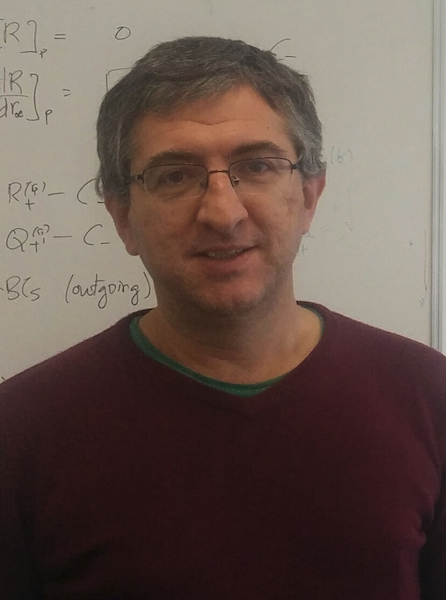Abstract
LISA, the Laser Interferometer Space Antenna, will be the first space mission ever to survey the Universe by detecting low-frequency gravitational waves.
LISA is a space mission led by the European Space Agency (ESA) in collaboration with the US National Aeronautics and Space Administration (NASA). It was selected by ESA in 2017 and adopted in January 2024, which means it enters implementation with an expected launch in 2035. The science of LISA is very broad and revolutionary, covering outstanding questions in Astrophysics, Cosmology and Fundamental Physics. In this talk, I will describe the main features of the LISA mission and its science case. In particular, I will discuss the main computational challenges we have to face to reach the ambitious science goals of the mission.
LISA is a space mission led by the European Space Agency (ESA) in collaboration with the US National Aeronautics and Space Administration (NASA). It was selected by ESA in 2017 and adopted in January 2024, which means it enters implementation with an expected launch in 2035. The science of LISA is very broad and revolutionary, covering outstanding questions in Astrophysics, Cosmology and Fundamental Physics. In this talk, I will describe the main features of the LISA mission and its science case. In particular, I will discuss the main computational challenges we have to face to reach the ambitious science goals of the mission.
 Short Bio
Short Bio
Carlos F. Sopuerta is an Investigador Científico (Scientific Researcher) at the ICE, CSIC. His research belongs to the area of Relativistic Astrophysics and Gravitation, with focus on the recently inaugurated area of Gravitational Wave Astronomy. He is the coordinator of the Gravitational Astronomy-LISA Group at the ICE. He has been a member of the Science Working Team (Spanish representative) of ESA's LISA Pathfinder mission; Member of the LISA Consortium Board (Spanish representative); Member of the LISA Science Study Team of ESA; Coordinator of the CSIC Research Unit of the Einstein Telescope (ET), a future third-generation ground gravitational-wave detector; Core member of the consortium for ELGAR (European Laboratory for Gravitation and Atom-interferometric Research) for the development of a ground-based gravitational-wave detector based on atom interferometry.
Speakers
Speaker: Carlos F. Sopuerta. Institute of Space Sciences (ICE-CSIC and IEEC)

